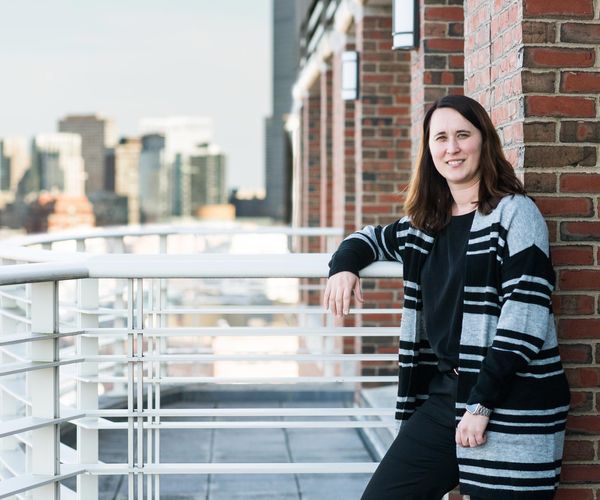March 3, 2020
By Rich Barlow
The coronavirus (COVID-19) was declared a national public health emergency by the Trump administration January 31, and two states, Washington and Florida, have issued their own declarations. But there have been no confirmed cases at BU and just two statewide in Massachusetts. Nevertheless, University leaders have a plan set to implement if the need arises, says emergency management director Rene Fielding.
“We’re already doing conference calls every day to talk about what’s going on, what new information’s coming out, how our planning efforts are going,” says Fielding, who started at BU in January and came from a similar role at Tufts University. Before that, she led the City of Boston Office of Emergency Management for six years.
If BU should confirm a campus case, Fielding says, the first action would be to open BU’s Emergency Operations Center. That activates a team of representatives from numerous BU offices that coordinates and implements responses to the outbreak. (Were an outbreak to become widespread, the team could telecommunicate to avoid potential contagion themselves.) Team members represent Student Health Services, Occupational Health—“our medical partners are going to be in the lead role,” Fielding says—Facilities Management & Operations, Dining Services, Housing, the Office of the Provost, the Dean of Students office, the Boston University Police Department (BUPD), and others.
The team would be guided by the University’s Major Infectious Disease Risk Annex. That written plan, in its own words, prescribes “how potential pandemic disease threats are monitored and communicated to the University community and how University functions involved in threat management will implement a coordinated response.…The combined expertise of the entire University will be required to prevent, prepare for, respond to and recover from an emerging infectious disease.”
This week the University also launched a website with information on steps to keep healthy, what to do if you get the virus, and protective measures the University is taking.
Coronavirus has afflicted almost 90,000 people in at least 67 countries, including 91 in the United States. Of those American patients, nine have died, all in Washington state. A Massachusetts woman, recently returned from Europe, may be the state’s second confirmed case, and 680 Bay Staters have been quarantined for observation, with many of them declared healthy.
Symptoms are similar to the flu, and a flu shot to strengthen your immune system is one preventive strategy. Fielding says that a Student Health Services (SHS) January flu clinic, held after publicity about the COVID-19 outbreak, drew more than 350 people. Students can still get a shot by calling SHS at 617-353-3575 or scheduling an immunization visit online through Patient Connect; employees can get a flu shot by calling Occupational Health at 617-353-6630.
BU Today asked Fielding and Kelly Nee, chief of the Boston University Police Department, for the main takeaways from the University’s plan.
Q&A With Rene Fielding and Kelly Nee
BU Today: What’s the government’s role in BU’s planning for a pandemic?
Fielding: The state would declare a state of emergency and send it to the federal government to approve. When that occurs, it makes a lot of funding available to get planning and operational needs met at the state level. It doesn’t impact our plan per se, other than a different level of guidance coming in. [Washington and Florida have declared states of emergency.]
What would happen to a student who is infected or has to self-quarantine? And what would the University do about housing for his or her roommates?
Fielding: If the student is really sick, they could have to stay in the hospital. For self-quarantining students, we have an inventory across the University of available rooms, single rooms with single bathrooms, and we would start using those rooms while they’re being tested to find out if they’re a confirmed case. There are also a few rooms that have a common bathroom. A confirmed case could use a shared bathroom with other confirmed cases. But during the testing phase, they have to be separate, because you don’t want to cross-contaminate.
If students had to be self-quarantined, how would they eat?
Fielding: Dining Services staff would deliver meals. They would deliver a set amount of meals and snacks, and make sure that they’ve got a refrigerator stocked with beverages to keep them hydrated.
If there’s a geographically wide outbreak, might food or medical supplies on campus be in short supply if vendors can’t meet the broad demand?
Fielding: We’ve seen that happen with [surgical] masks that no one can find. Sourcing & Procurement is working with a multitude of vendors and trying to get us the levels we’re looking for. And they’ll look at, if we can’t have [say] this mask, what about an alternative mask that would meet the needs.
Is there any preventive cleaning Facilities is doing now?
Fielding: They’re in flu protocol now, so they’re cleaning common areas and elevator buttons and a lot of spaces around campus multiple times a day.
Schools could close for children of employees who are parents. Can BU help those folks?
Nee: Human Resources is guiding departments about people working remotely if we get active cases.
This article originally appeared in BU Today on 3/3/2020.
Find more BU Today articles on the University’s efforts to address coronavirus here.
